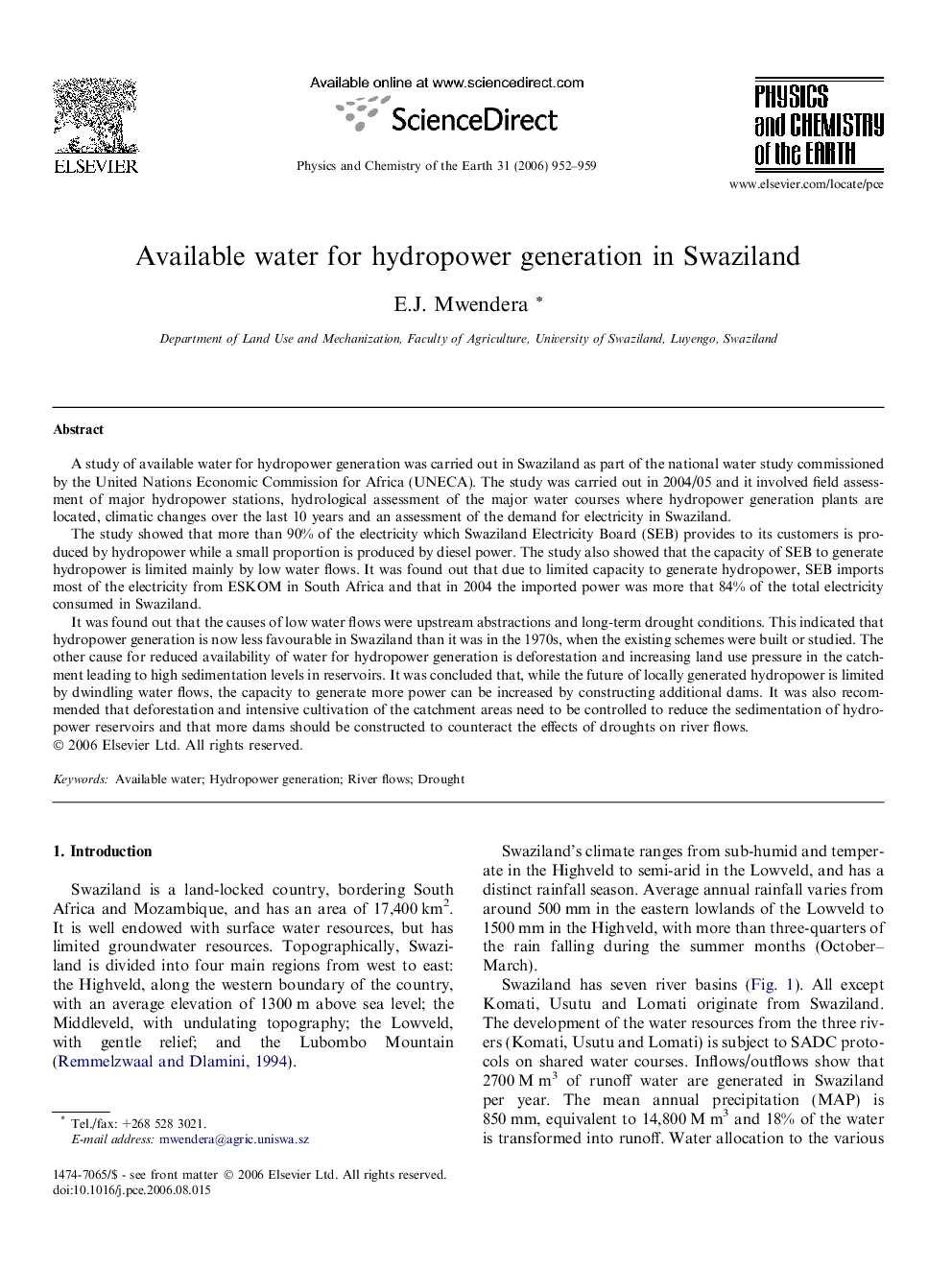| کد مقاله | کد نشریه | سال انتشار | مقاله انگلیسی | نسخه تمام متن |
|---|---|---|---|---|
| 4722195 | 1639408 | 2006 | 8 صفحه PDF | دانلود رایگان |

A study of available water for hydropower generation was carried out in Swaziland as part of the national water study commissioned by the United Nations Economic Commission for Africa (UNECA). The study was carried out in 2004/05 and it involved field assessment of major hydropower stations, hydrological assessment of the major water courses where hydropower generation plants are located, climatic changes over the last 10 years and an assessment of the demand for electricity in Swaziland.The study showed that more than 90% of the electricity which Swaziland Electricity Board (SEB) provides to its customers is produced by hydropower while a small proportion is produced by diesel power. The study also showed that the capacity of SEB to generate hydropower is limited mainly by low water flows. It was found out that due to limited capacity to generate hydropower, SEB imports most of the electricity from ESKOM in South Africa and that in 2004 the imported power was more that 84% of the total electricity consumed in Swaziland.It was found out that the causes of low water flows were upstream abstractions and long-term drought conditions. This indicated that hydropower generation is now less favourable in Swaziland than it was in the 1970s, when the existing schemes were built or studied. The other cause for reduced availability of water for hydropower generation is deforestation and increasing land use pressure in the catchment leading to high sedimentation levels in reservoirs. It was concluded that, while the future of locally generated hydropower is limited by dwindling water flows, the capacity to generate more power can be increased by constructing additional dams. It was also recommended that deforestation and intensive cultivation of the catchment areas need to be controlled to reduce the sedimentation of hydropower reservoirs and that more dams should be constructed to counteract the effects of droughts on river flows.
Journal: Physics and Chemistry of the Earth, Parts A/B/C - Volume 31, Issues 15–16, 2006, Pages 952–959